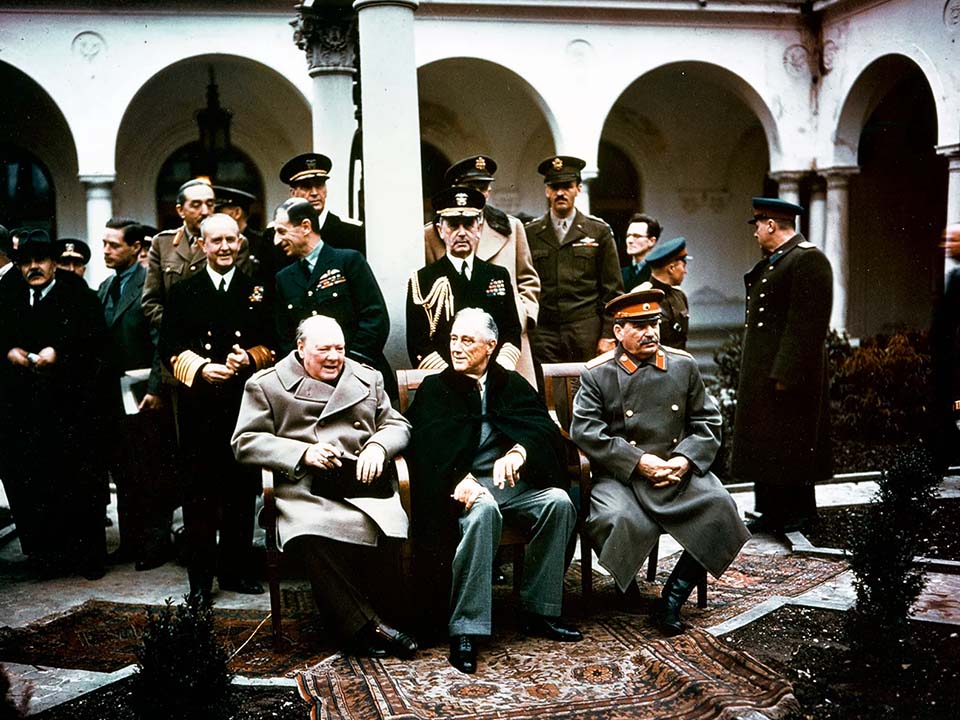Was the Grand Alliance simply a partnership born of necessity? Or was it also a missed opportunity for post-war civilizational cooperation among the United Kingdom, the United States and the Soviet Union?
Once it became clear that the Allies would eventually defeat Hitler’s Germany, the varying post-war ambitions and political goals of Stalin, Churchill and Roosevelt quickly brought cooperation to an end. Humanities West asks on the 80th anniversary of end of World War II: What were Stalin’s strategic goals for Russia’s and its neighbors’ futures as victory became assured? How did Churchill’s strategies to retain as much as possible of the British Empire interfere with those goals? And was an aging Roosevelt capable of thwarting both those strategies and imposing, however inadequately and insincerely, a vision of Pax Americana on the globe?
“From Their Archives”
Norman Naimark will attempt to untangle what Stalin was thinking about how he wanted to shape the future once it was clear that the Allies would win the war. There is much we still do not know about Stalin’s “real” intentions, but the opening of the Soviet archives for research in the 1990s offer important insights into the way the Soviet dictator thought about the world.
“In Their Own Words”
Ian Morris will convey, in their own words, Churchill’s and Roosevelt’s perspectives on the Grand Alliance and the post-war world order. Churchill: I can never trust Stalin but can in the fullness of time talk around Roosevelt; and even without India, we can rebuild the world with the British Empire at its core. Roosevelt: I can usually handle Stalin and can always flatter Churchill; it’s the Republicans I can’t abide. But even without them, we can rebuild the world with democracy and American money at its core.
“Walking in a Father’s WWII Footsteps”
Bill Hammond will describe walking in a father’s WWII footsteps, an October 2023 trip to Europe he took with two of his brothers, where they traced their father’s path from his landing at Salerno, Italy, through Avellino, Monte Cassino and Rome, to his landing on the French Riviera at St. Raphael, and then up through Draguignan, Remiremont and the Foret Domaniale du Champ du Feu, earning two silver stars and two purple hearts before crossing the Rhine in a dash through southern Germany to finish the war near Kufstein, Austria.
